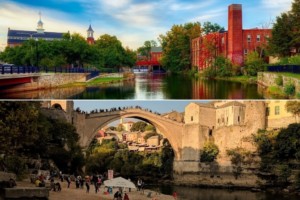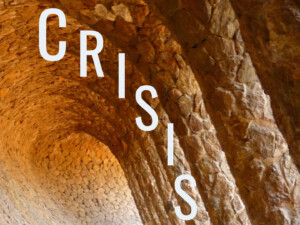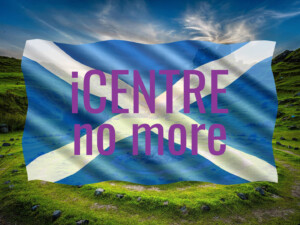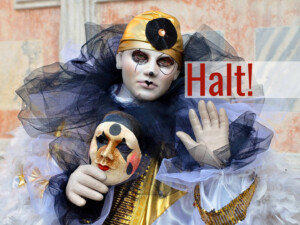Mass tourism Corfu: With or without you?
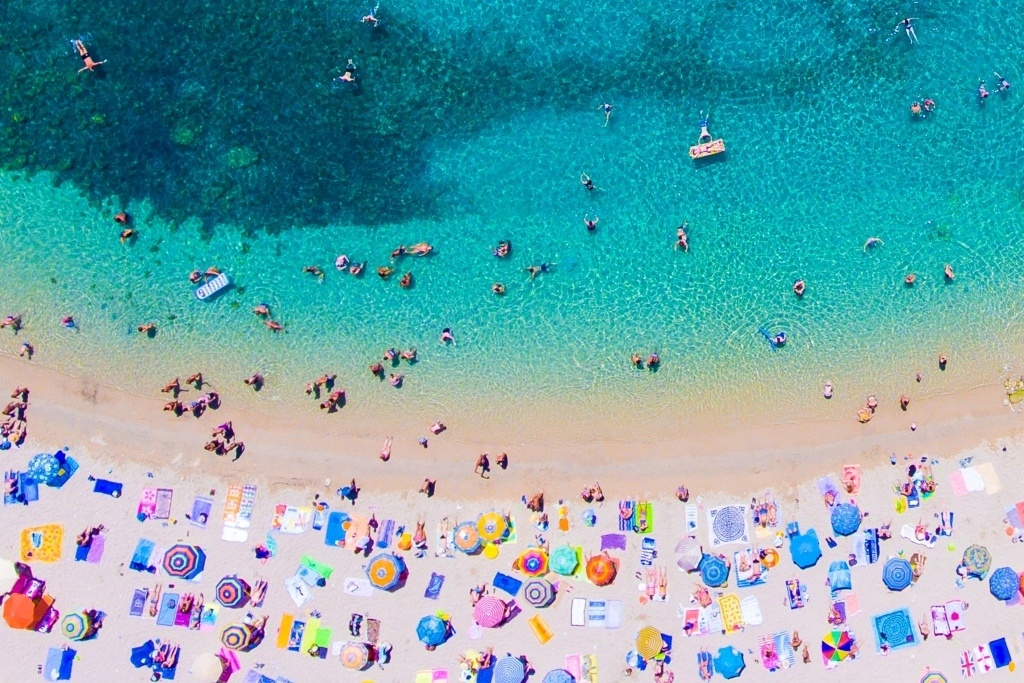
How many tourism academics observe the industry as tourists? Melanie Kay Smith does. Dr Smith enjoys regular trips to the Greek islands. Her experiences and conversations over the past two COVID-affected summers have highlighted to her some of the problems caused by imposed limits on tourism. It’s a “Good Tourism” Insight.
[Thanks to Jim Butcher for inviting Dr Smith to write a “GT” Insight.]
The writing of this piece was prompted by our recent holiday on Corfu, Greece. It was not our first visit. We have often described it as our favourite Greek island.
It was different this year; the second summer season since the advent of COVID. The atmosphere had changed. A sense of melancholy pervaded the air and serving staff seemed either languid or frantic.
Last summer, 2020, in a gap between lockdowns, we were lucky enough to make it to Zakynthos. The season had hardly started when we arrived in late July. Staff were still learning how to manage the restrictions and limitations.
The wearing of masks was compulsory indoors. Tables were spaced out in tavernas. Gaps were left between sunbeds. And the number of visitors was exceptionally low, especially for an island that has relied on mass package tourism.
The experience was wonderful for us. The resorts and beaches were uncrowded, boats were half empty, and the economic impacts of COVID had not yet taken their toll.
More importantly, there was a sense of optimism and relief among our hosts that tourism was possible again and that at least half the peak season would take place.
Also see Peter Richards’ “GT” Insight
“A CBT dilemma: COVID’s ‘new normal’ vs ‘back to normal’
Exhaustion at half the capacity
One year on, and a very different story could be told. We observed half-full family-run restaurants whose owners were run ragged because they could not afford to employ staff. Business was just enough to keep them over-worked but not enough to justify staff. In any case, many trained and qualified people had left to work in other sectors.
A restaurateur in her 50s explained that the bruises on her pretty face were caused by falling over with exhaustion while she tried to manage two businesses simultaneously. Her husband had encouraged her to stop, but we saw her literally running from the kitchen to the restaurant on more than one occasion.
Some restaurants asked us not to order certain dishes because they only had one chef who could not cope with all the orders. We frequently waited more than an hour for food or were even forgotten for a while.
Greece is famous for its hospitality, and the service encounters were still friendly and welcoming, but staff shortages were more than apparent.
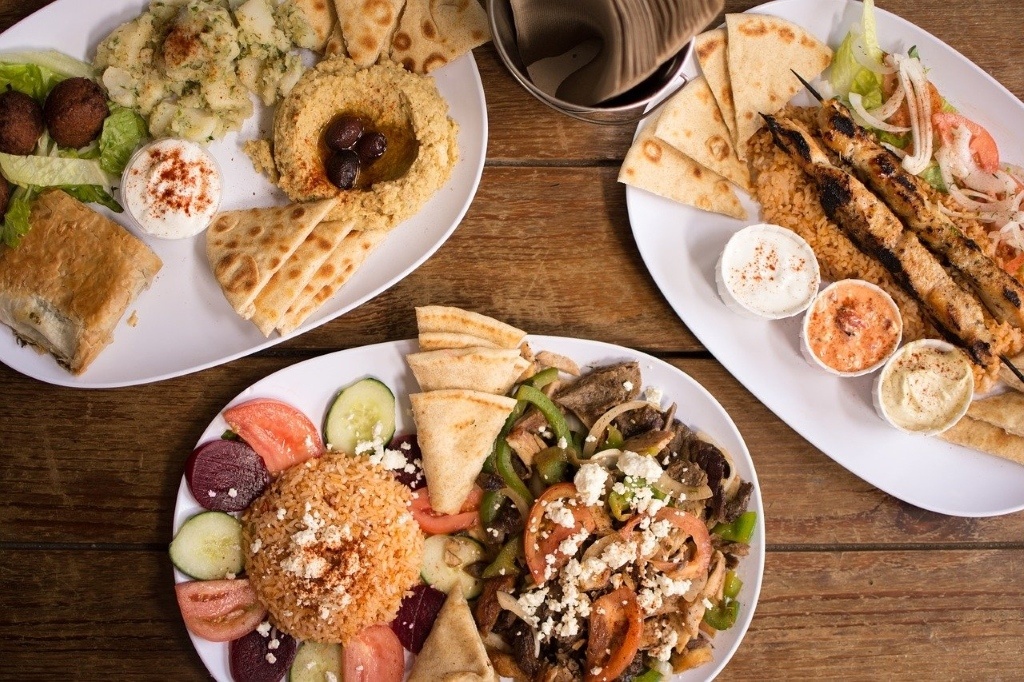
On the night we arrived at our accommodation, the owner’s wife had collapsed with exhaustion and heat stroke. Greece had just experienced an extreme heatwave with temperatures of up to 47°C and devastating wildfires.
She told us that she had been working 16 or 17 hours per day, seven days a week and that they were only allowed to run the place with half capacity. For this reason, they could not afford to employ staff.
It was family affair. We frequently saw the elderly grandmother or youngest daughter cleaning the rooms. The grandfather maintained the property, doing odd jobs like painting the swimming pool.
It was difficult to get workers. There were even shortages of hire cars and taxis.
Bankruptcies, booking dotcoms, & broken dreams
The owner of our accommodation, Nikos, told us stories about how tourism had changed; not only due to COVID, but also since the collapse of Thomas Cook and the rise of a particular bookings site.
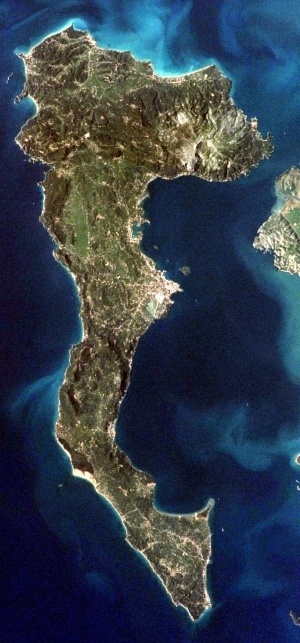
He told us a ‘joke’ about the typical English package tourist that they used to accommodate who did not even know which country they were in, let alone on which island. Some had planned to go to Marbella and ended up in Corfu without even realising!
Nikos said that he would regularly break up fights between tourists, even husbands and wives.
He told the story of a package tour company going bankrupt and leaving angry tourists stranded at his property for 17 days. He was obliged to feed them at his own expense. They had paid less than EUR 50 (~USD 59) for their packages!
This was nothing compared to the rowdy scenes in nearby Kavos, where, as he put described it, “rape is not the worst thing that can happen to you”. Apparently, some drunk lads had dumped their comatose friend in a large dustbin with tragic consequences. There were numerous drug- and booze-fuelled accidents: falls from balconies, drownings, overdoses, alcohol poisonings …
For a moment Nikos looked cheerful when we asked if the big online booking sites had changed the profile of his guests. Oh yes, he said, there were far more middle class and educated people coming now from France, Germany, Belgium, and the UK.
Then his face fell again as he described how such tourists often stay for a shorter time, are more independent, and are conscious of distributing their spending money around the destination. They do not expect nor want meals, drinks, or excursions to be provided by the accommodation owner.
Package guests are exhausting, he said, but they are more dependent on their accommodation host. They spend their money at one place.
Nikos urged us never to book with one particular booking dotcom again as they take at least 28% of the money. We did not have the heart to tell him that we had lost our first booking on Naxos precisely because of a problem with that website, and ended up in his accommodation in Corfu as a result.
We felt somewhat guilty about our independent status and our tendency to take meals in different locations. On the other hand, the owners clearly could not cope with a half-capacity workload. We avoided having dinner there because we did not want to burden them further.
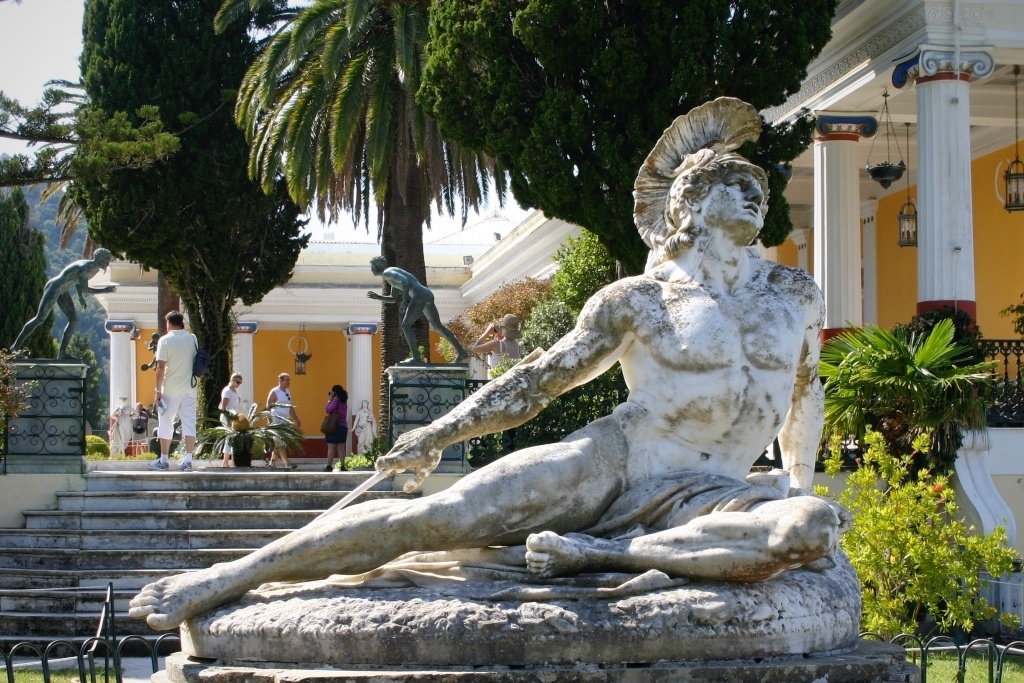
The saddest moment was when Nikos said of the tourists and his home, “their paradise, my cemetery”. He stated that his business was no longer profitable because of COVID, government restrictions on capacity, and the greed of the booking sites.
My husband and I both work partly in tourism management and were shocked and saddened by what we witnessed on this trip. We had momentarily dreamed of running a tourism business on Corfu.
Nikos is of a similar age to us. It had been his dream too, but he was relieved that his daughters would not be following his footsteps into hospitality.
Dependable dependants
The problems we observed run deeper than COVID, but there are no easy solutions.
No destination dreams of rowdy package tourists who have no idea which country they are in. Yet for decades in some places, mass tourists have provided a steady stream of good income for their hosts as they depend upon them for every service.
Also see Jim Butcher’s “GT” Insight
“Why it’s misanthropic to malign mass tourism”
Independent, educated, higher spending tourists who plan their own trips and make their bookings via the big dotcoms rely on their hosts for very little. They use their accommodation as a base from which to explore while they distribute their spending around different locations.
Neither model is ideal for many family-run tourism businesses.
Ironically, while so-called ‘overtourism’ has been heavily criticised, even by those who profit from it, the alternative is unthinkable for those who cannot survive without it.
Nikos said that he used to have 100 bookings for summer a year in advance. Now he has none. The UK market has dried up and he cannot plan ahead.
It was clear that he found it hard to live with the types of tourists that he had hosted in the past, but any tourism is better than none when your livelihood depends on it.
Agree? Disagree? What do you think? Share a short anecdote or comment below. Or write a “GT” Insight of your own. The “Good Tourism” Blog welcomes diversity of opinion about travel & tourism because travel & tourism is everyone’s business.
Featured image (top of post): Mass tourism on Corfu: With or without you? By CALIN STAN (CC0) via Unsplash.
About the author
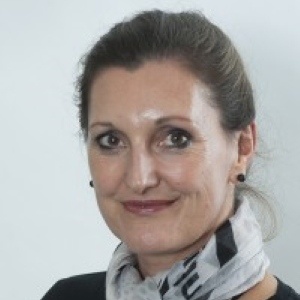
Melanie Kay Smith is an associate professor, researcher, and consultant whose work focuses on urban planning, cultural tourism and the relationship between tourism and well-being. Dr Smith leads the BSc and MSc Tourism Management programs at Budapest Metropolitan University in Hungary. Melanie was Chair of ATLAS (Association for Tourism and Leisure Education) for seven years and has undertaken consultancy work for UNWTO and ETC as well as regional and national projects on cultural and health tourism. Her most recent research focuses on wellness tourism, the impacts of ’overtourism’ in cultural cities, and the changing nature of urban cultural tourism.


